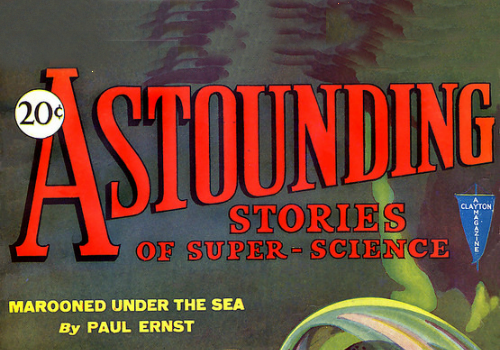Science Is Story: Why We Need More Stories About Science

Stories can impact the future. No one knows that better than science fiction authors, and writer-scientists. All week, leading up to our Interstellar Day of Science and Storytelling on Friday, May 8, we’re talking the power of story with everyone from Star Trek writers to computer scientists. Today, Dr. Kathy Kitts, longtime Wrimo and geologist, shares why story needs to be even more crucial in science:
We’ve all seen the posters that list nifty inventions that first appeared in science fiction and later in our pockets. Scientists and engineers readily admit they take inspiration from the stories they’d read. Yet there is another very important contribution that story makes to science that we don’t talk about. Often, story communicates science concepts better than science itself does.
It’s not that scientists don’t know how to write (or can’t be taught), but rather a strong cultural bias exists against employing the tools of story in science. Somehow by using metaphor, we contaminate the data, dilute the message and undercut our credibility…
This bias is so pervasive many of my colleagues use pseudonyms for fear that writing fiction may reflect badly on their grant submissions. (If they make up stuff for stories, they might make up stuff in studies.) Yearly, at the Lunar and Planetary Science Conference, a secret cabal of SF writers convene late at night to discuss writing. We joke that if we’re found out, we’re going to lie and say we smoke crack, have illicit sex, and siphon off grant funds to head to the casino. Society will forgive sex, drugs and gambling. There’s always rehab. But fiction! No.
As humans learn best by metaphor, science is hard to understand because we’ve cut the best tool from the curriculum. Let me demonstrate the power of story in communicating hard science:
Recently, oil and gas interests have been sweet-talking my neighbors to allow drilling. We had a meet-and-greet with an industry rep at the local library. I arrived armed with drill core data and geologic maps to show what a colossally bad idea this was. The rep showed up with key chains and a story.
He described how the money would bring prosperity to the area, how our children could go to college and how we could save for our retirement. I looked at my maps and realized that if I went straight data, I’d lose to Mr. Keychain.
So I said, “Hi. I’m Kathy, the motherfracker.” After the laughing died down, I explained as a geologist it was my job to teach my students how to frack. I taught my students what to pump into the ground and what would happen to the environment as a result. I attended the meeting not as a geologist, but a citizen desperate to save my land and water. I spread out the maps so people could see the actual data, but I’d taken the day with story.
If society doesn’t allow scientists to mix metaphor and data, then it is up to us as writers to take on the role of communicator. I encourage you to get involved in activities such as the Interstellar Day of Science and Storytelling, supported by NaNoWriMo and the Chabot Space & Science Center, and help out the science folk by writing about real science concepts in your fiction. Use the tools of story and connect to the part of us that loves to sit around the fire and swap tales of adventure and love. Your story might just save the planet.

Dr. Kathy Kitts, a twelve time NaNoWriMo winner, hails from the desert southwest. She is a retired geology professor who served as a team member on the NASA Discovery Mission Genesis. Despite having written dozens of scientific papers, school curricula and textbooks, she no longer writes about what is, but rather what if. Her recent fiction adventures include short literary fiction and speculative fiction in the Storyteller’s Anthology, James Gunn’s Ad Astra, and Mad Scientist Journal.
Top photo by Flickr user x-ray delta one.
Chris Baty's Blog
- Chris Baty's profile
- 63 followers



